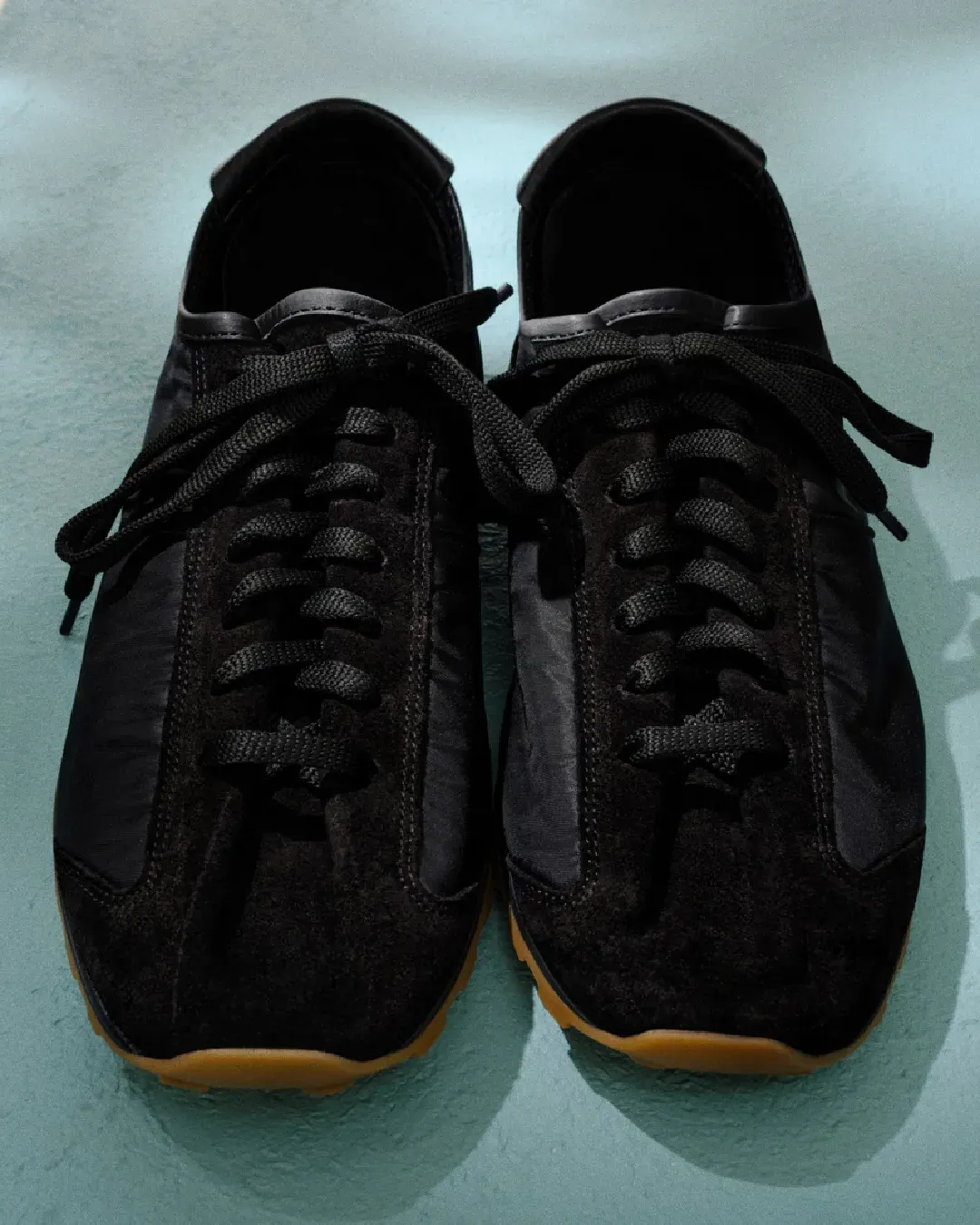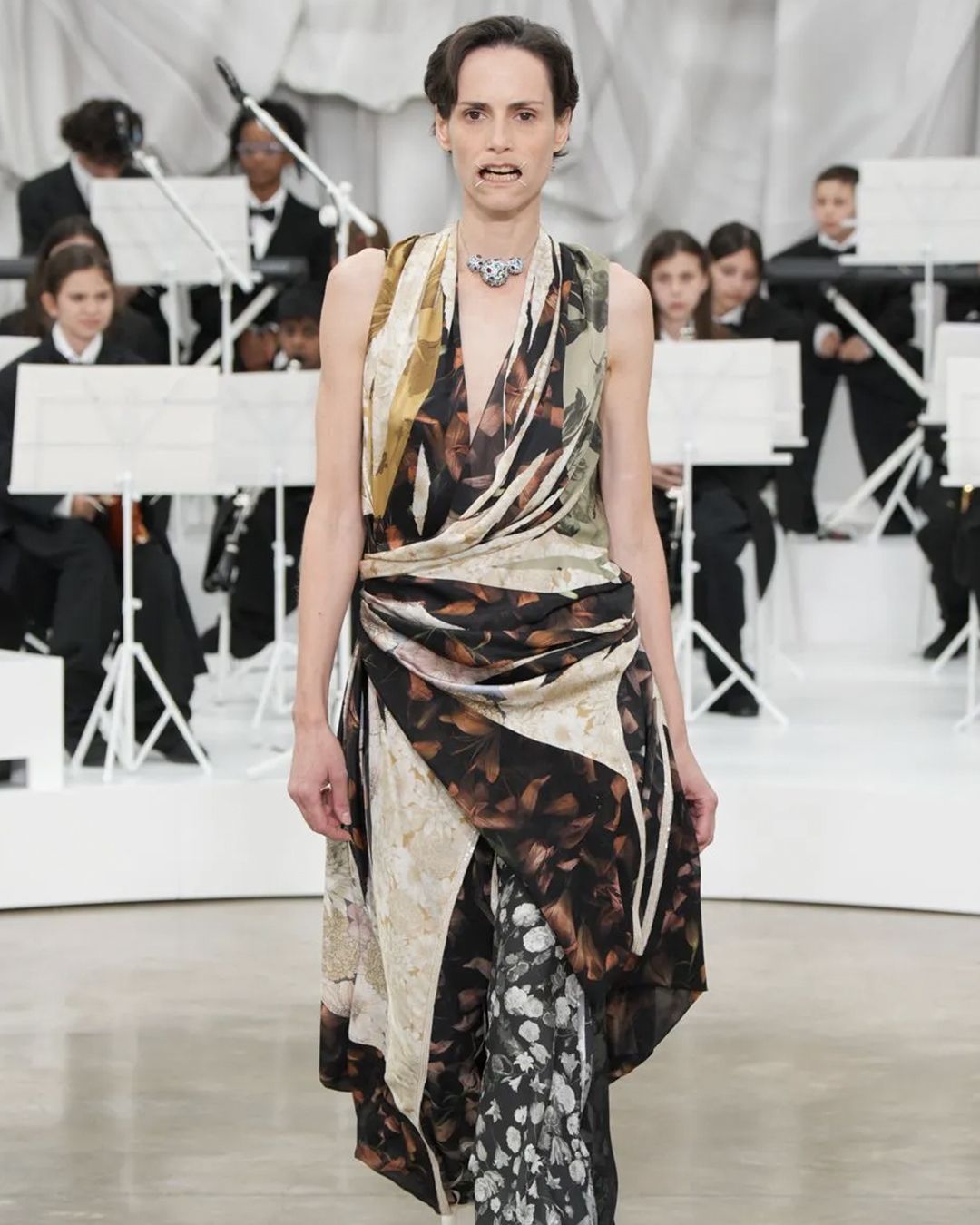
The cost of independence Challenges and compromises of independent brands
Rising inflation, a tense geopolitical scenario, and a pandemic that is still a reality for the once driving Asian market: the fashion industry is undergoing an epochal transformation, an upheaval that manifests itself outwardly in often tired creativity, inwardly in the resignation of art directors, new CEOs and hasty marketing strategies. But if the big corporations are the undisputed protagonists of an ever-evolving industry, it is the independent brands that pay the price. Thousands upon thousands of labels compete fiercely to carve out a place for themselves on the scene. From Band of Outsiders to Raf Simons, many are forced to give up when faced with the often utopian project of turning their visions into commercial reality, fuelled by the false myth that ideas alone are enough to make a brand big.
According to a BoF estimate, the LVMH, Kering, and Richemont groups, together with the 'independent giants' Hermès and Chanel, controlled around 40 percent of the luxury goods market, or €281 billion, in 2019. After the pandemic, the same groups (mainly LVMH and Kering) became even more dominant as the independent brands were wiped out. Due to the declining perceived (and real) value of many brands, few investors are interested in saving them, while a significant number of Maisons are already backed by private equity or venture capital firms, incentivized to grow at any cost to be sold to a larger group. Takeovers, already scarce, are flourishing at bargain prices. It is clear that in the world of fashion, independence comes at a high price and is not always compatible with the times and whims of creativity.
On the one hand, there are the pressing rhythms and costs, conditional issues that affect production, and on the other, there is the need for a clear stylistic identity that stands out in a world where everything seems to have already been saying. And while social media is by no means the essence of a brand's story, taking the lead in the scene with a viral campaign and big-name support can prove successful, even if the hype does not last forever and has absolutely nothing to do with a brand's longevity: just look at Been Trill. Because while ideas are certainly the starting point, it is also true that in the society of obsessive scrolling, the life cycle of creativity is getting shorter and shorter, giving way to bland projects or trends recycled from the past. The true price of independence today is compromised, the middle ground between one's consistency and the ability to appeal to the general public.
A compromise that for Acne Studios, founded in Sweden in 1996 by Jonny Johansson, is reflected in the decision to entrust its image in the FW22 campaign to one of the most influential stars of the moment, Rosalia, exploiting the same celebrity culture that Margiela, the father of independents, rejected at all costs, to the point of covering the models' faces with mascara and embroidery, as if the identity of the individual had to disappear in the face of the expressiveness of the clothes. For Anne Demualemeester, on the other hand, a brand founded in 1992 by the Belgian designer of the same name and taken over last year by Dreamers Factory, the compromise lies not only in the takeover but also in combining its image - gothic, minimalist, deliberately niche - with a designer with a sexy and boisterous background like Ludovic De Saint Sernin.
For others, compression has to do with time. Jerry Lorenzo, the Los Angeles-based designer of Fear of God, has not released ready-to-wear collections in two years. He prefers to finance his independent company, founded in 2013, with the Essentials product line and through collaborations. While other brands release six or more collections a year, Lorenzo used his self-imposed flexibility by working with a factory in Los Angeles to create the exact finish he wanted for woven Japanese denim and building relationships with Italian factories to add suits, high-end fabrics, and knitwear to his repertoire.
For Amy Smilovic's Tibi, independence means not only smaller collections but also pre-orders, a way to better manage inventory by getting an early commitment from the customer. For Enfant Riches Deprimés, scarcity is the key to success: the ability to stay off the radar by relying on a few trusted retailers and very limited inventory has made Henri Alexander Levy's brand an object of desire for fashionistas, with garments being resold on secondhand websites around the world at double the list price.
For still others, their image is compromised enough, as in the case of the numerous 'influencer designers' who are despised by fashion intellectuals for their alleged tendency to put their aesthetics above clothes, thus failing that compromise of anonymity and grumpiness that characterized the great creatives of the 1990s. Giorgia Tordini and Gilda Ambrosio for The Attico, Simon Porte for Jacquemus, and Ashley and Mary-Kate Olsen for The Row, children of a new generation of trendsetters who were able to use the power of the media to assert their independence, both economically and stylistically, creating an unprecedented and successful brand model, inspired by the mastery of amplifying one's image, already anticipated by figures such as Yves Saint Laurent when he decided to pose nude for the Opium campaign, which caused sales of the perfume to soar. Ashley and Mary-Kate Olsen's annual sales are estimated at over $100 million, making them one of the few luxury brands outside of the big corporations.
Jacquemus also passed the 100 million mark in 2021, but aims to double that turnover by the end of 2022, making it, as Bof points out, 'the most successful French brand to enter the market in over a decade. For these people, the price of success is often a celebrity, that somewhat morbid fame that makes the cult of fashion designers comparable to that of Hollywood stars, symbolized by the marriage of Simon Porte Jacquemus and Marco Maestri, celebrated in the gossip columns as the ultimate social event. Some people pay with time, some by surrendering to the face of a shining celebrity, and some with their own private lives, but independence always comes at a price.















































